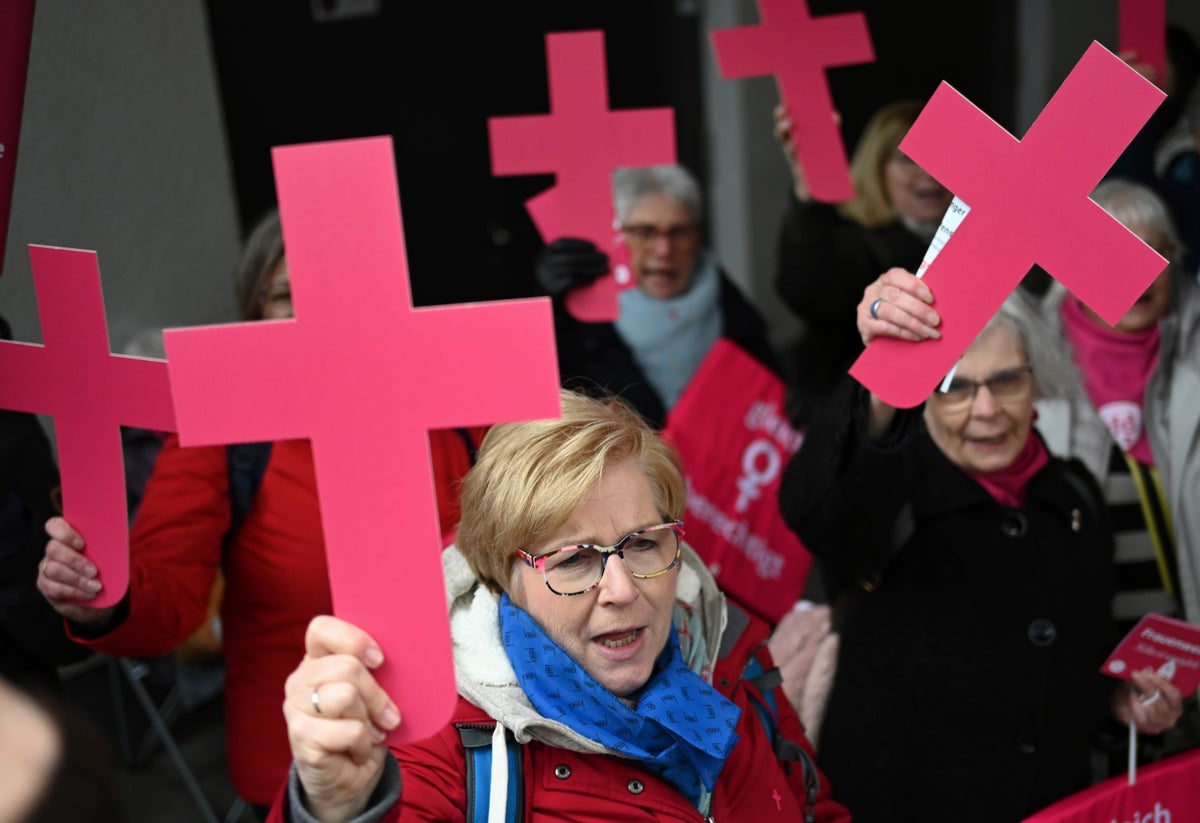
Germany’s Catholic bishops and lay representatives gathered on Thursday for the final meeting of a potentially groundbreaking reform assembly that has been marked by tensions between liberalizers and conservatives and is drawing increasingly open opposition from the Vatican.
The German process, dubbed the “Synodal Path,” was launched in 2019 in response to the sex abuse crisis that has rocked the church in Germany and many other countries and has been a major factor in large numbers of people leaving the church.
The synodal assembly, meeting in Frankfurt from Thursday through Saturday, brings together 230 representatives of Catholic life in Germany.
Its fifth and final gathering is expected to discuss proposals that include blessings by priests for same-sex couples, female deacons and a role for the faithful in choosing bishops.
Any decisions, however, need the approval of two-thirds of the 67 German bishops — and that may prove a high bar in view of internal divisions and increasingly strident criticism from the Vatican. The lack of such approval meant that the Synodal Path’s last assembly in October failed to approve a text calling for a liberalization of sexual teaching, despite 82% overall backing.
A 74-member “Synodal committee,” which will bring together diocesan bishops and lay representatives and whose final members are to be elected at the assembly, is supposed to be tasked with further work on the various issues over the next three years.
In an effort to assuage concerns from Rome, German church leaders have insisted the process won’t trigger a schism.
However, Pope Francis himself said in a January interview with The Associated Press that the process might become harmfully “ideological.” He said that, while dialogue is good, “the German experience does not help.”
Francis said the process to date has been led by the “elite” because it doesn’t involve “all the people of God.”
For the global Catholic Church, the pontiff has called for a two-part synod, or assembly, that will bring bishops and laity to discuss the future direction of the church and ways in which it can rejuvenate its mission.
At the same time, German bishops face pressure from frustrated grass-roots Catholics in a country where Christians are roughly equally divided between Protestants and Catholics and many struggled with the conservative stance of the late Pope Benedict XVI, a native German.
“There were phases of disappointment, of rage and despair, but also phases of euphoria and working together successfully,” Irme Stetter-Karp, the co-chair of the assembly and head of the Central Committee of German Catholics, an influential lay organization, said of the process before the assembly opened on Thursday.
“Now we must prove that we were worthy of the trust of so many people, that the Synodal Path can show tangible results,” she said.
Stetter-Karp, who is a co-chair of the Synodal Path, acknowledged that “we have relatively high tensions because the interventions from Rome are having an effect.”
She called on bishops to stand by their convictions rather than abstain. And she said it must be clear when the assembly ends that there will be a follow-up to the process. “If we can't agree substantially on this, then our energy — including that of us lay people — will unfortunately have been squandered,” she added.
The head of the German Bishops' Conference, Limburg Bishop Georg Baetzing, said that “this church, my church, deserves us not simply leaving it the way it is.” The aim of proposed changes is to help make the church better able to serve its purpose, he added.
Baetzing, the Synodal Path's other co-chair, welcomed Francis' planned global assembly and called for the German church to “bring our results and experiences into this worldwide synodal path.”





.jpg?w=600)

